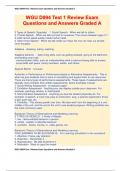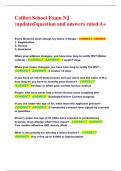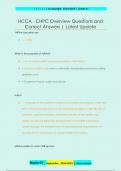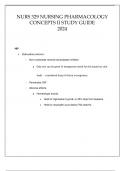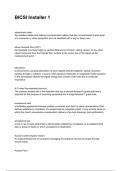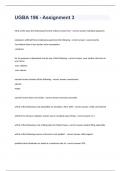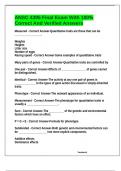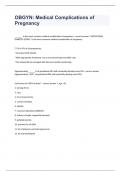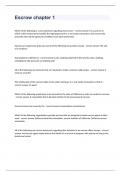Tentamen (uitwerkingen)
WGU D094 Test 1 Review Exam Questions and Answers Graded A
- Vak
- Instelling
3 Types of Speech (Vygotsky) - 1. Social Speech - When we talk to others 2. Private Speech - When we talk out loud to ourselves. This occurs between ages 3-7. A child cannot speak quietly inside his/her head. 3. Silent Inner Speech - When we talk inside our head. No one can hear our private inner...
[Meer zien]
